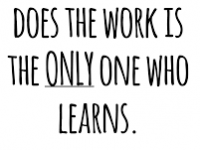Mindset is key for success in all aspects of your life. Here is an article from BSDE’s Parent Lisason Officer about how to grow our minds, and the minds of our mini-me!
Key # 1 – Mindset for Growth
Practising mastery skills – changing our habits, thoughts and actions – helps change our brain, from one stuck in helplessness to one focused on ‘stick-to-it-ness’. Help kids learn that, “Where our brains go, they will grow”. Be explicit, teach children why and how it works. As adults, putting the focus on ‘process praise’ rather than ‘person praise’ ensures we place the value on the journey i.e. effort and persistence.
Help stretch the ability to delay gratification – putting the effort in (doing well) comes before feeling good. The more this is deliberately practised, the reward will start to flow more naturally in the doing. This helps develop intrinsic (internal) motivation, driving students for the long haul. A far better outcome than using extrinsic (external accolades / trophies) rewards – which result in short term gain.
Key # 2 – Awareness of Obstacles
If you think you can’t you won’t. If you think you can, you embrace.
Striving for goals is not a smooth line, there are always ups and downs along the way.
What is the most likely obstacle in SMART (Specific,Measurable, Achievable, Realistic, Time Frame)goals?
What is your IF THEN plan?
What are you going to do when faced by a setback/ obstacle?
T – My Target is ..
O – My Obstacle is ..
P – My Plan is …
Key # 3 – Tools to Sharpen the Saw
What can you do when plans run amok? Stop the belief that traits are fixed. Start your TOP plan. Focus on strengths to help in challenging times (forgiveness, humility). Build relationships to help sure yourself up for when times get tough.
Adults can help by responding with words to acknowledge, encourage and to broaden and build a student’s positive self-talk. Lean in and hug, rather than taking over to fix their problems for them. Studies have shown that children, and adults, recover more quickly when they realise that hardships aren’t permanent and pervasive: are not entirely their fault, don’t affect every aspect of their lives and won’t follow them everywhere forever (Seligman, The Optimistic Child).
Help children learn to take responsibility for actions and practise kindness – to themselves and others (“I mucked up, I feel yukky. And this is how I plan to do better next time”) rather than heading straight to the blame game and finding fault elsewhere, in tools / persons.
“How many of us start something full of excitement and good intentions, and then give up permanently – when we encounter the first real obstacle, the first long plateau in progress.” Angela Duckworth
Camilla Haskell
Parent Liaison Officer
Adapted from: Keys to Building Resilient Young People, Luke McKenna, Positive Schools Conference, 2018


